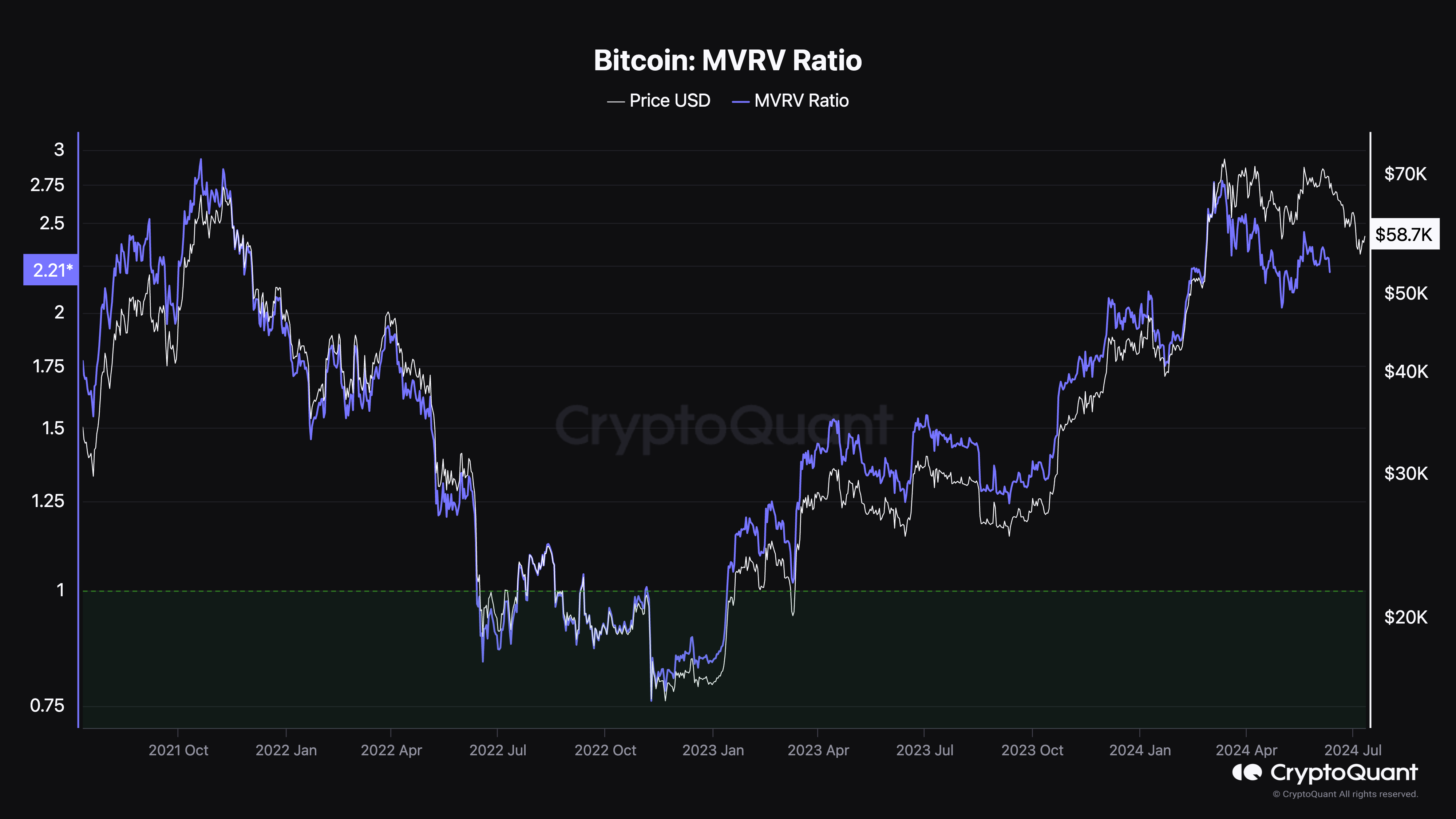Majority of Bitcoin Holders Maintain Profits Even After Price Slump
11.07.2024 15:00 1 min. read Alexander Stefanov
Recent data reveals that despite Bitcoin's price dropping below $60,000 due to significant selling by major entities like the German and US governments over the weekend, a substantial 83% of all Bitcoin holders remain in profit.
According to insights from the on-chain tracker IntoTheBlock, out of approximately 53.57 million Bitcoin investors globally, the majority, comprising 83%, are currently experiencing gains even after the recent market turbulence.
This statistic leaves about 17% of holders not in profit: 13% are facing losses from purchasing BTC at higher prices, while 4% are at breakeven.
These figures indicate that around 44.61 million Bitcoin holders continue to benefit from their investments, notably those who entered the market below the $50,000 mark. Despite the recent market volatility, this majority remains in profit, illustrating resilience in Bitcoin’s long-term investment appeal.
However, there is a notable trend affecting long-term holders, with average returns potentially dipping into losses for the first time in over a year.
According to Santiment, these periods are typically favorable for buying, particularly when “Bitcoin’s 30-day and 365-day MVRV show negative readings.” This development is historically seen as a favorable buying opportunity.
Historical data suggests that buying during periods when Bitcoin’s long-term holder returns are negative has historically yielded substantial returns, highlighting potential opportunities for savvy investors to enter the market.
-
1
Bitcoin Price Prediction for the End of 2025 From Standard Chartered
02.07.2025 18:24 1 min. read -
2
Robert Kiyosaki Says Crypto Is Key to Building Wealth in a Failing System
27.06.2025 10:00 1 min. read -
3
Top Public Companies by Bitcoin Holdings
02.07.2025 10:00 2 min. read -
4
Franklin Templeton Warns of Serious Risks in Institutional Bitcoin Treasury Strategies
03.07.2025 18:12 2 min. read -
5
American State Bans Crypto Investments and Payments in Sweeping New Law
01.07.2025 14:33 2 min. read
Has BTC Topped? Key Signals Suggest The Rally isn’t Over
Despite Bitcoin soaring past $120,000 and testing new all-time highs, several high-frequency market indicators suggest that the current bull run may still be gathering momentum.
Top Crypto Trends Dominating Discussions This Week
As Bitcoin smashes through all-time highs, crypto-related conversation is surging across social media.
Vanguard Now Owns 8% of Michael Saylor’s Strategy, Despite Calling BTC ‘Worthless’
In a striking contradiction to its long-held skepticism toward cryptocurrencies, Vanguard Group now owns more than 20 million shares of Strategy Inc.—the software company famously tied to Bitcoin through its massive holdings.
Deutsche Bank Explains why Bitcoin’s Dip May Not be What it Seems
Bitcoin’s fall from its recent $123,000 all-time high to $117,000 sparked waves of speculation—but according to Deutsche Bank, this isn’t a typical cooldown.
-
1
Bitcoin Price Prediction for the End of 2025 From Standard Chartered
02.07.2025 18:24 1 min. read -
2
Robert Kiyosaki Says Crypto Is Key to Building Wealth in a Failing System
27.06.2025 10:00 1 min. read -
3
Top Public Companies by Bitcoin Holdings
02.07.2025 10:00 2 min. read -
4
Franklin Templeton Warns of Serious Risks in Institutional Bitcoin Treasury Strategies
03.07.2025 18:12 2 min. read -
5
American State Bans Crypto Investments and Payments in Sweeping New Law
01.07.2025 14:33 2 min. read


